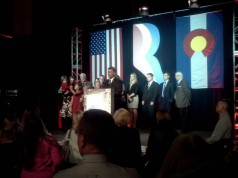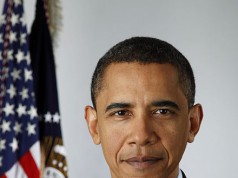Amendment 65
Yes
No
Amendment 65 calls for an amendment to the U.S. Constitution to set mandatory campaign spending limits.
“When
you have these elite, wealthy donors who are writing huge checks, it
distorts the conversation around our elections and really drowns out the
voices of the rest of us who aren’t writing those huge checks,” says
Elena Nunez of Colorado Common Cause, one of the amendment’s endorsers.
“Amendment 65 is about leveling the playing field so everyone can be
heard regardless of their ability to write huge campaign checks.”
Citizens United vs. the Federal Election Commission, among
other court decisions, has created an opportunity for political action
committees (PACs) and super PACs, independent groups that can raise and
spend unlimited sums of money without full disclosure of donor
information. According to a report from the CoPIRG (Colorado Public
Interest Research Group) Foundation, 57.1 percent of the $230 million
raised by super PACs from individuals came from 47 people who gave $1
million or more, and 94 percent came from 1,000 people who gave $10,000
or more.
“Having the
voters of Colorado vote on this on the statewide ballot is a powerful
way to kick-start the movement for a constitutional amendment at the
federal level,” Nunez says. “The idea is if we can pass ballot measures
in many states we can start to build the momentum necessary for a
federal constitutional amendment.”
If
passed, Colorado will join eight other states — California,
Connecticut, Hawaii, Maryland, Massachusetts, New Mexico, Rhode Island
and Vermont — calling on Congress to make such an amendment. Montana has
a similar measure on the ballot this fall.
No
committee has been formed to oppose the amendment, which has been
endorsed by CoPIRG, Colorado Center on Law and Policy, Colorado
Environmental Coalition, Colorado Fair Share, Colorado Progressive
Coalition, New Era Colorado and the Rocky Mountain Peace and Justice
Center. But one think tank, the Independence Institute, has been
speaking out against the initiative.
“This
is asking the government to control what people can say during
elections about the government, which is extremely dangerous,” says
David Kopel, research director at the Independence Institute and an
adjunct professor in constitutional law, with a focus on the First
Amendment, at the University of Denver Sturm College of Law.
The
amendment asks for legislators to create a constitutional amendment
without pegging specific amounts, a move Kopel calls “reckless.”
“Amendment 65 is a blank check for censorship of political speech,” Kopel says.
He
argues that this amendment will empower people who spend independently
on behalf of someone’s campaign (though the current system has allowed
for the rise of figures like Sheldon and Miriam Adelson, who had given a
combined $36.3 million to super PACs for the 2012 elections by
mid-September — more than was spent in the entire 2008 election cycle,
according to reports from the Center for Responsive Politics).
“The
plain fact in our democracy is that every person is supposed to have an
equal voice,” says Peter Schurman, campaign director for Free Speech
For People. “The bogus argument that money equals speech means that
those who have more money are, in Orwellian terms, more equal than the
rest of us. The result is that what we have in America today to choose
our public officials is not elections so much as auctions, and that’s
wrong. We need to put democracy back in the hands of we the people, and
the way to do that is with constitutional amendments overturning those
misguided Supreme Court cases.”
We
each have only one ballot to cast. A small group of people shouldn’t be
allowed to use our pocketbooks well before election day to direct how
other people vote through aggressive political campaign advertisements
on television and in our mailboxes. Vote yes on 65.
Respond: [email protected]














